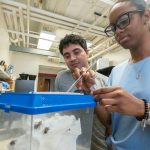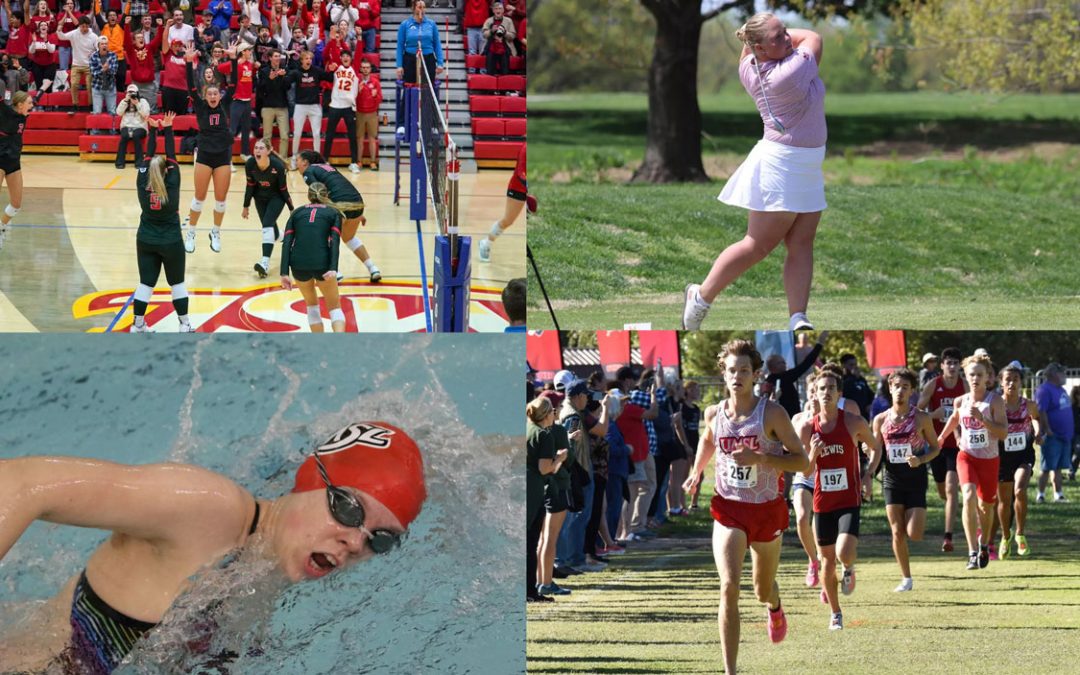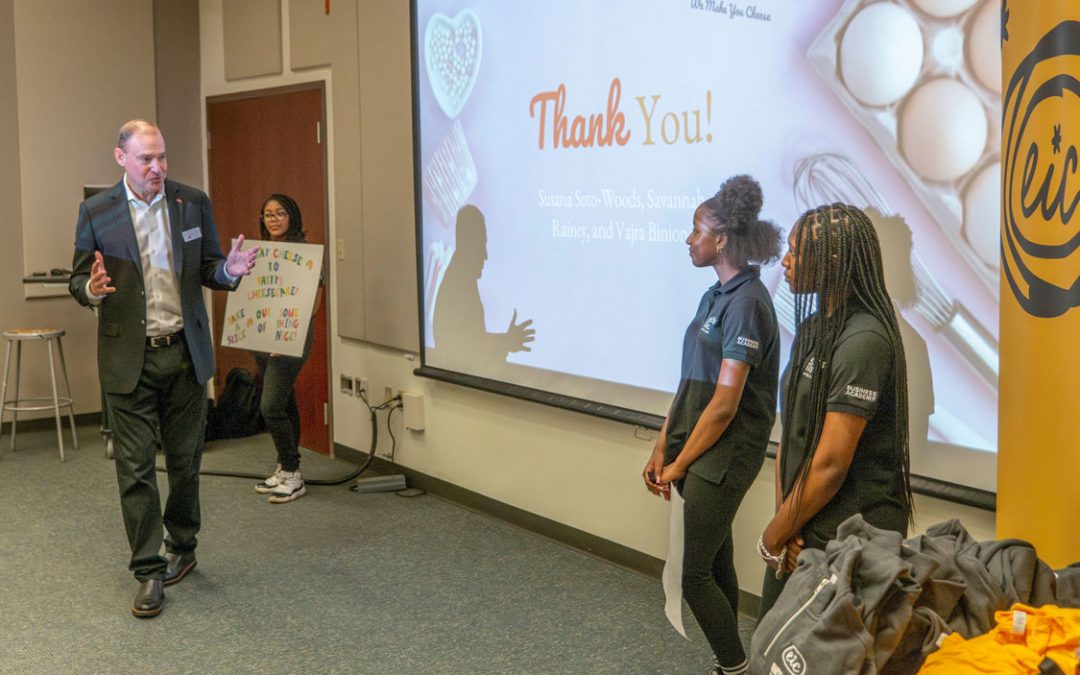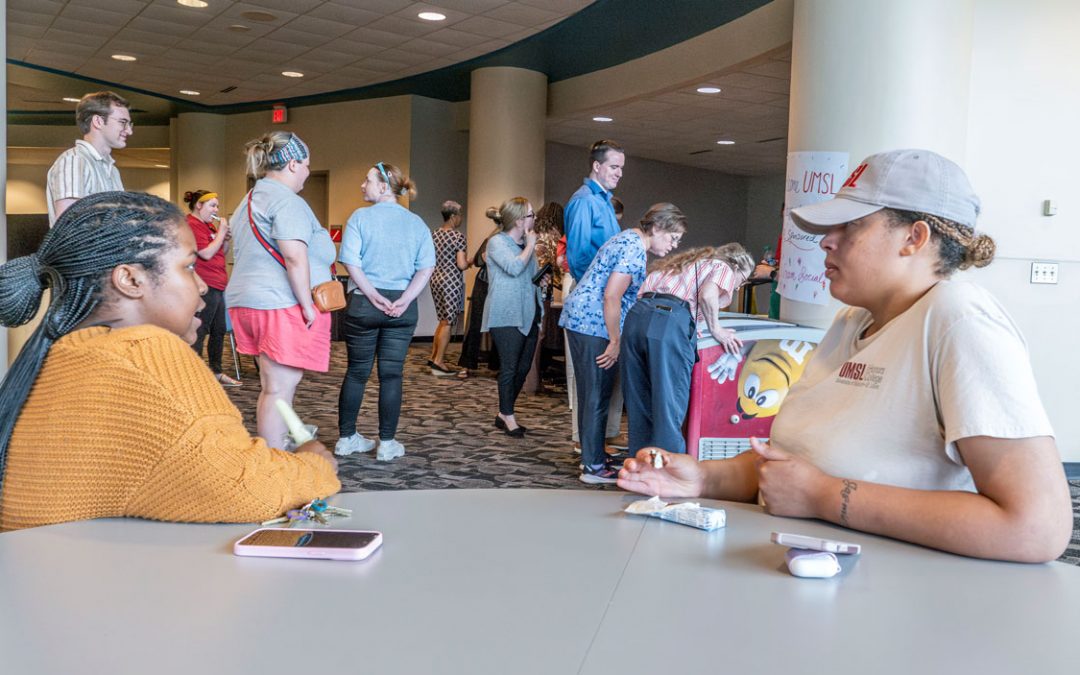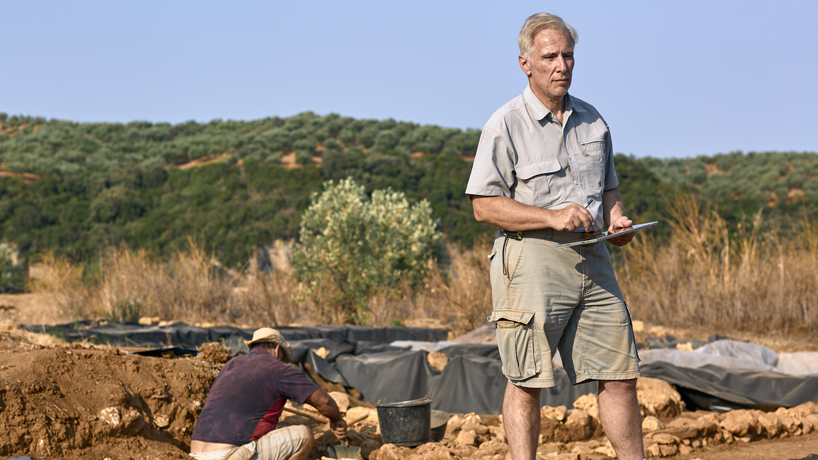
Michael Cosmopoulos, the Hellenic Government-Karakas Foundation Professor of Greek Studies at the University of Missouri–St. Louis, was elected to the American Academy of Arts and Sciences as one of 261 members of the 2022 class. (Photo courtesy of Michael Cosmopoulos)
Michael Cosmopoulos is no stranger to international attention and acclaim for his more than 30 years of research and scholarship into ancient Greece.
The American Academy of Arts and Sciences became the latest organization to honor his accomplishments when it elected Cosmopoulos, the Hellenic Government-Karakas Foundation Professor of Greek Studies at the University of Missouri–St. Louis, to its ranks. He was one of 261 new members chosen for the 2022 class.
“It does feel good to be recognized in the sense that your peers and your colleagues see that you have done some significant work in the field,” said Cosmopoulos, who received a message from American Academy of Arts and Sciences President David W. Oxtoby notifying him of his election. “There is also a practical aspect in that it opens up a lot of possibilities for collaborative projects within the Academy.”
Cosmopoulos will be inducted at a ceremony in 2023.
Founded in 1780, the Αcademy honors excellence and convenes leaders from every field of human endeavor to examine new ideas, address issues of importance to the nation and the world, and work together, as expressed in its charter, “to cultivate every art and science which may tend to advance the interest, honor, dignity, and happiness of a free, independent, and virtuous people,” according to its website.
Among the Academy’s founders were American Founding Fathers John Adams, Benjamin Franklin, Thomas Jefferson and George Washington, and its membership over the years has grown to include luminaries in a wide array of fields such as Ralph Waldo Emerson, Jonas Salk, Charles Darwin, Albert Einstein, Georgia O’Keeffe, Toni Morrison and Nelson Mandela. Nomination for membership and election to the Academy is a secret process, so that new members do not know that their names have been put forward until they are elected.
Cosmopoulos is the second member of the UMSL faculty to be inducted in as many years, following Patricia Parker, the E. Desmond Lee Endowed Professor in Zoological Studies who was part of the 2021 class.
Cosmopoulos is especially known for his work with the Iklaina Archaeological Project, which he directs. The project is conducted under the auspices of the Archaeological Society at Athens and funded through UMSL’s Greek professorship as well as through major grants from the National Endowment for the Humanities, National Science Foundation and National Geographic Society.
The Iklaina site is a Bronze Age capital, that dates to the time of the Trojan War, between 1500 B.C. and 1200 B.C. It’s believed to be one of the sites mentioned in Homer’s epic poem, The Iliad, as one of the capitals of the Greek kings who fought in the war.
At Iklaina, Cosmopoulos has uncovered evidence of the early development of a two-tiered system of government, not unlike what exists in the United States today.
The discoveries made there have transformed what had previously been believed about the origins of states and governments in ancient Greece.
He believes lessons from sites such as Iklaina and also the study of the origins of democracy as established by the ancient Athenians in the fifth century B.C. have renewed relevance at a time when democratic governments around the world seem under stress.
Before Iklaina, Cosmopoulos directed the Oropos Project and the excavation of the Sanctuary of Demeter and Kore at Eleusis. He also has participated in other important excavations in Greece and in Ukraine while working as a professor of classical studies at the University of Manitoba.
Cosmopoulos’ interest in the ancient world was almost unavoidable.
“I grew up in Athens, and you’re surrounded by it,” said Cosmopoulos, who studied archaeology, history and literature at the University of Athens as an undergraduate student. “I grew up with a book on Greek myths. So, I always felt enamored with ancient Greece, and I never had any doubts as to what I would like to do with my life. I love history. I love those ruins, the broken stones and the ancient artifacts. Then, as I was maturing, I realized that all these are part of a story – the human story. The more I researched ancient Greece, the more I saw the connection to today and the relevance that it has to our lives today.”
He also gets a thrill from discovery.
“I cannot begin to describe to you the feeling when you actually excavate something,” Cosmopoulos said. “You take it out of the ground, and you realize that what you hold in your hands has not seen the light of the sun for 3,000 or 4,000 years. The last time someone actually saw this object was the person who held it so long ago, so it’s like a direct connection to a human being who lived thousands of years ago.”
Cosmopoulos, who earned his master’s and PhD at Washington University in St. Louis and has also studied classical languages at Sorbonne University, has been featured prominently in the national and international press, including on PBS and the National Geographic Channel and his work has earned him the title of National Geographic Explorer.
He has published 16 books and more than 100 studies in scientific journals, scholarly volumes and conference proceedings that cover topics ranging from prehistoric archaeology, ancient Greek religion and classical art.
Cosmopoulos has previously been elected to the European Academy of Sciences and Arts and the Royal Society of Canada and is a corresponding member of the Academy of Athens.
He is honored to add the American Academy of Arts and Sciences to that list, particularly because of the value it places on the humanities.
“You need to read literature, you need to read poetry, you need to read history to understand who you are and where you’re going and what the factors that affect your life are,” Cosmopoulos said. “Learn about the human experience. I think if we lose that part of our education and our culture, then not only do we become like robots without any emotional intelligence and the ability to understand what’s happening to us, but we will end up misusing technology because we are not understanding the impact that it has on us, as human beings.”
Cosmopoulos is the first U.S.-based Greek archaeologist to be elected as a regular member of the American Academy of Arts and Sciences since his mentor, famed Washington University Professor of Archaeology George Mylonas (1898-1988), who was elected in 1961.
ΣΗΜΑΝΤΙΚΗ ΔΙΑΚΡΙΣΗ ΣΤΗΝ ΑΜΕΡΙΚΗ ΓΙΑ ΕΛΛΗΝΑ ΑΡΧΑΙΟΛΟΓΟ: O ΜΙΧΑΛΗΣ ΚΟΣΜΟΠΟΥΛΟΣ ΣΤΗΝ ΕΘΝΙΚΗ ΑΚΑΔΗΜΙΑ ΕΠΙΣΤΗΜΩΝ ΤΩΝ Η.Π.Α.
Την περασμένη Παρασκευή, ο Καθηγητής Αρχαιολογίας και κάτοχος της Έδρας Ελληνικών Σπουδών του Πανεπιστημίου Missouri-St. Louis Μιχάλης Κοσμόπουλος εξελέγη Τακτικό Μέλος της Εθνικής Ακαδημίας Τεχνών και Επιστημών των Η.Π.Α. Η Ακαδημία, ιδρυμένη το 1780, αποτελεί το ανώτατο πνευματικό Ίδρυμα των Η.Π.Α. και στους κόλπους των μελών της συγκαταλέγονται ιστορικές προσωπικότητες όπως o Thomas Jefferson, ο Κάρολος Δαρβίνος και ο Albert Einstein.
Ο Μιχάλης Κοσμόπουλος εξελέγη για την εδώ και πάνω από 30 χρόνια προσφορά του στην αρχαιολογία. Με πλούσιο συγγραφικό και ανασκαφικό έργο στη μελέτη της ελληνικής αρχαιολογίας, ανέλαβε την Έδρα Ελληνικών Σπουδών του Πανεπιστημίου Missouri-St. Louis το 2001. Τα τελευταία 20 χρόνια διευθύνει την ανασκαφή της Αρχαιολογικής Εταιρείας στην Ίκλαινα Μεσσηνίας.
Για περισσότερες πληροφορίες επισκεφθείτε https://blogs.umsl.edu/news/2022/05/06/archaeologist-michael-cosmopoulos-elected-to-american-academy-of-arts-and-sciences/











